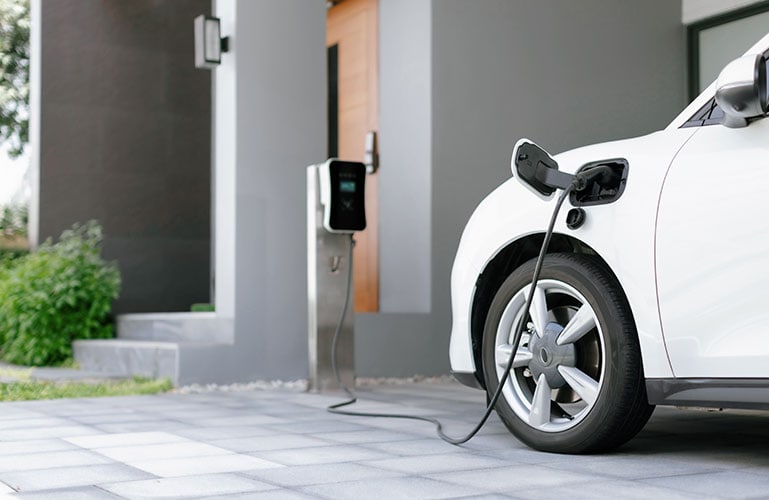With electric vehicles (EVs) becoming more popular, many homeowners are considering installing an EV charger at home for convenience and long-term savings. However, the question on everyone’s mind is: What’s the real cost of EV charger installation at home? In this guide, we’ll break down the expenses involved, helping you plan for this smart investment.
1. Types of EV Chargers and Their Costs
The cost to install an EV charger at home depends largely on the type of charger you choose. EV chargers come in three levels, but most homeowners opt for Level 1 or Level 2 chargers.
- Level 1 Charger
A Level 1 charger typically comes with your electric vehicle and plugs into a standard 120-volt outlet. The installation cost is minimal to zero, as it doesn’t require additional electrical work. However, it charges slowly—adding only about 3-5 miles of range per hour of charging. - Level 2 Charger
A Level 2 charger requires a 240-volt outlet, similar to a dryer or oven. It charges much faster, adding 25-30 miles of range per hour. Level 2 chargers cost between $300 and $1,200, depending on the brand, features, and capacity.
2. Installation Costs
Once you’ve chosen a charger, the next major expense is installation. A professional electrician is required to install a Level 2 charger, especially since it may require upgrading your home’s electrical panel. Here are some potential costs to consider:
- Electrical Panel Upgrades
If your home’s electrical panel doesn’t have enough capacity, you might need to upgrade it. This can add $500 to $2,000 or more to the total cost, depending on the complexity of the upgrade. - Wiring and Labor Costs
The labor for installation typically ranges from $300 to $1,000, depending on the difficulty of the job and the distance between your electrical panel and the location of the charger. If you need additional wiring or a new circuit, these costs can go higher.
3. Permitting and Inspection Fees
Some local municipalities require permits for electrical work, especially for the installation of a Level 2 EV charger. Permit costs can vary widely, but you should expect to pay anywhere from $100 to $500. Additionally, a final inspection may be required to ensure the work is up to code, which could incur extra fees.
4. Ongoing Energy Costs
In addition to the installation costs, it’s important to consider the long-term expenses of using an EV charger at home. Charging an electric vehicle will naturally increase your electricity bill. However, this cost is still significantly lower than gasoline expenses. On average, charging an EV at home will cost about $30 to $60 per month, depending on your vehicle’s efficiency and local electricity rates.
5. Potential Rebates and Incentives
Many utility companies and local governments offer rebates and incentives to offset the cost of installing an EV charger. These can range from $200 to $1,000, depending on your location and the specific programs available. Be sure to research local incentives before starting your installation, as they can substantially reduce your out-of-pocket costs.
6. Final Cost Breakdown
Here’s a rough estimate of the total cost to install an EV charger at home:
- Charger: $300 – $1,200
- Installation and labor: $300 – $1,000
- Electrical panel upgrade (if needed): $500 – $2,000
- Permits and inspections: $100 – $500
- Rebates and incentives: -$200 to -$1,000 (depending on availability)
Total Estimated Cost: $1,000 to $4,700
The cost to install an EV charger at home depends on several factors, such as the type of charger, the complexity of the installation, and potential electrical upgrades. While the upfront investment may seem significant, the convenience of home charging and long-term savings on fuel can make it well worth the expense. Be sure to explore any available rebates to lower your costs and consult a licensed electrician to get an accurate quote for your home’s specific needs.


